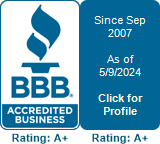How a Forensic Accountant Can Help You With Employee Theft
- By Admin
- •
- 05 May, 2017
- •

Owning a business can bring the opening quote of Dickens' A Tale of Two Cities to mind: "It was the best of times, it was the worst of times." While the best of these times may come from the freedom and satisfaction you feel from paving your own way in the world, the worst may involve significant financial losses after a trusted employee steals or mishandles money.
Whether you suspect one or more employees of actively committing theft or worry that your existing anti-embezzlement efforts may prove inadequate in the future, untangling your business's financial history on your own can be a complicated and messy process.
Oftentimes, a forensic accountant can help you track down missing funds and build a strong case against any employees, vendors or others who may be doing you harm. Read on to learn more about the specific tasks a forensic accountant can accomplish and how you can get started toward building a more fraud-proof business.
Vulnerabilities of the Modern Business
Even industry leaders may feel lost when it comes to their business's bookkeeping needs amid an ever-increasing load of regulations, tax rules and other laws. Unless you already have some specialized education and training in accounting, learning to handle your business's finances can be a full-time job in and of itself.
On the other hand, hiring out this task to an employee can leave you vulnerable to embezzlement or fraud. Unless you physically witness an employee putting money into their pocket, you may not have the knowledge or background necessary to dig through your own books and pinpoint discrepancies.
Those who are inclined to defraud their employers know that doing so slowly over time is far more likely to evade detection than stealing significant or noticeable amounts all at once. While you may wonder why your business never seems able to turn a profit for long, without more evidence of fraud, you're not likely to dig much further.
Services Forensic Accountants Offer Businesses
A forensic accountant, much like an auditor, can sift through your business's bookkeeping records to spot any discrepancies or red flags that might signify an employee's fraud. Unlike a traditional auditor (like those employed by the IRS), a forensic accountant has specialized training in litigation and other non-accounting fields that can help them build a strong legal case.
For example, while an employee's confession of theft may be enough to spur you to go to the police, it might not be enough to carry a conviction in a criminal or civil court of law. With training on the rules of evidence, forensic accountants can gather documents and data that will help you back up your claims — regardless of how strong they may otherwise seem, which ensures that you will prevail at trial.
In addition to untangling any chains of theft, a good forensic accountant can help you set up your financial and accounting processes to avoid future fraud and embezzlement. This can be an invaluable service — even for businesses that have never experienced employee-based fraud.
By setting up redundancies and checkpoints in your financial process, you'll be far better able to gain a snapshot of your business's finances at any point in time. This will provide you with the tools you need to stay on top of your finances and assure employees that any discrepancies they may notice or create won't go unchecked for long.
By enlisting a forensic accountant to help you get your finances in order, you'll be ahead of the game when it comes to preventing, tracking down and prosecuting any fraud that may befall your business. Contact us at Williams & Associates Tax Services for more information.
One vital aspect of a business that demands careful attention is payroll management. Learn why hiring a certified accountant can improve operations.
Turning to a full-service accounting firm to outsource key CFO responsibilities might just be the solution you're looking for. Read to learn more.
Many businesses might make mistakes when filing their tax returns. Learn about a few examples of mistakes and tips on how to avoid the mistakes.
Proper accounting and bookkeeping are vital to the survival of an online business. Read this blog to learn six tips that will make these things easier.
Rather than hiding from your bookkeeping be proactive with it in order to avoid problems. Learn why proper bookkeeping matters more than you thought.
For a small- or medium-sized business owner, taxes may be frustrating. Luckily, you can lower your tax burden. Learn how in this blog.
Every business needs one or more individuals who manage and guide its finances. Learn about the details of what each accounting role does.
Running a business requires a lot of work, and much of that work involves finances. Check out these three reasons you may need forensic financial services.
Errors in bookkeeping can have a large impact on your finances. Read on to learn five common errors and how to safely avoid them in the future.











